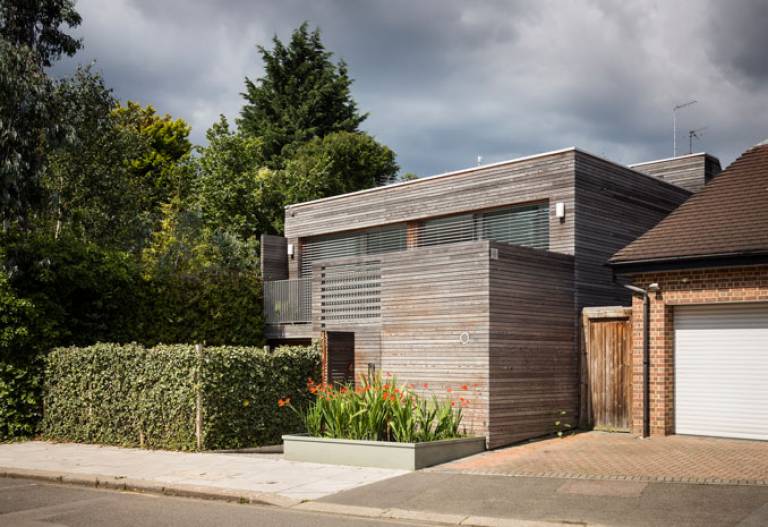UCL help to evaluate London's first PassivHaus

1 May 2014
A warm welcome from Passivhaus
Passivhaus is the gold standard for ultra-low energy homes. It was developed in Germany in the early 90s by Bo Adamson and Wolfgang Feist. The Passivhaus Staans homes should be able to remain at a comfortable ambient temperature of around 20C with a minimal amount of heating or cooling.
It is a "fabric-first" approach to energy efficiency so the building does the work, rather than relying on bolt-on renewable energy devices, like solar panels and ground-source heat-pumps. Super-high insulation, absolute air-tightness and harvesting the sun's energy through south- facing windows, all help the building to retain as much heat as possible.
Funded by the Technology Strategy Board (TSB), the Bere Architects' study team worked closely with UCL and other external consultants to analyse the post-construction performance of the building, with the occupants in residence. The aim was to achieve a comfortable and healthy home for the family while minimising its energy use, lowering bills and delivering a healthier indoor air quality.
Building Performance Evaluation
During the BPE study Phase 1 the fabric and services were extensively tested, while in Phase 2 a detailed monitoring plan was utilised to assess the energy consumption and building services systems' performance.
The UCL team included Dr. Ian Ridley (UCL/RMIT) who published several papers on the energy performance and the comfort in the house, plus Dr. Stephanie Gauthier and Dr. Hector Altamirano Medina who organised interviews with the occupants to evaluate their satisfaction with the building
The study showed that:
- the total yearly gas and electricity consumption of the Camden Passivhaus compares very favourably with similar projects across the UK
- the pre-fabricated timber frame buildings can achieve exemplary low heat loss levels
- the Passivhaus design appears to be robust enough to achieve low energy consumption, and
- the Passivhaus Planning Package (PHPP) proved to be a good design tool.
Cameron Logan, Contracts Manager, at UCLC - who helped negotiate the terms of the study - commented: "Designing and building sustainable homes is one of the pivotal issues facing society. If the knowledge gathered through this study can encourage a step change in the industry, then homes which combine energy efficiency with high levels of comfort could become the norm."
 Close
Close


